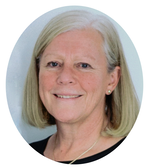
Community and Climate challenges (October 7, 2021)
In the following article, Deborah Henderson, Director of the Institute for Sustainable Horticulture, Kwantlen Polytechnic University (Canada) describes how 'Trees for Life' project is diversifying and addressing challenging resource for youth and women in West Arsi District, Oromia, Ethiopia during a time of Covid19 and climate change.
In the following article, Deborah Henderson, Director of the Institute for Sustainable Horticulture, Kwantlen Polytechnic University (Canada) describes how 'Trees for Life' project is diversifying and addressing challenging resource for youth and women in West Arsi District, Oromia, Ethiopia during a time of Covid19 and climate change.
